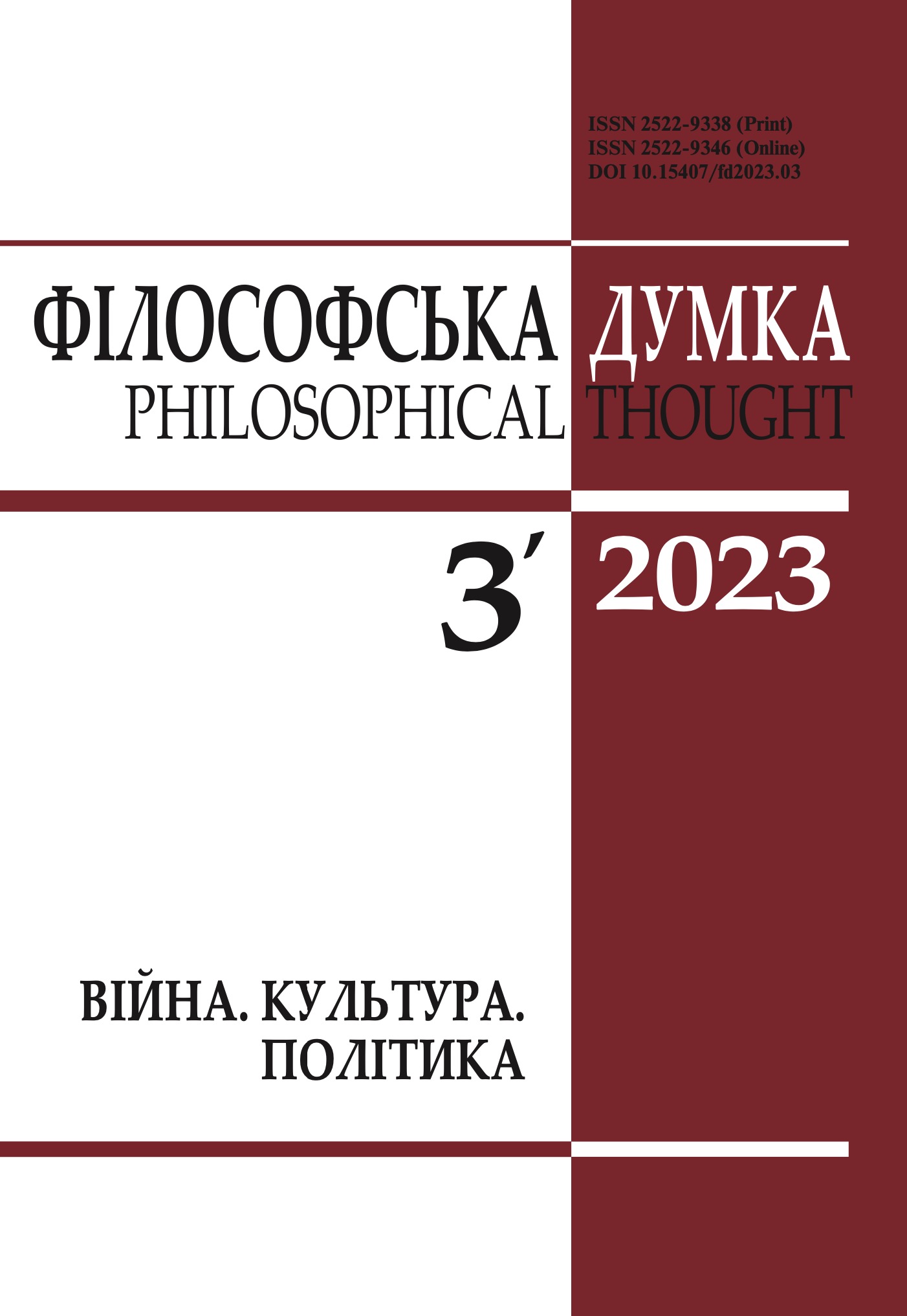PHENOMENOLOGY OF DREAMING: A PHILOSOPHICAL SKETCH
Young Scientist’s Page
DOI:
https://doi.org/10.15407/fd2023.03.150Keywords:
dreams, experience, consciousness, I, Other, StrangerAbstract
The article focuses on justifying the relevance of a phenomenological approach to the study of dreams, as well as outlining directions for such research. The author views the experience gained by a person in a dream as something that can be brought into existentia.The article illustrates that although dreams cannot be the object of reflection in real time,
they become a moment of consciousness when (and if) they remain in memory. Visually or emotionally vivid dreams can remain in a person’s memory on par with memories of real events. At the same time, a clear distinction is maintained between events from the dream and those that occurred in reality.The author interprets dreams as a component of individual experience and at the same time as an element of the intersubjective world. The intersubjectivity of the dream experience is determined by the universality of certain psychological experiences and bodily experiences associated
with sleep and dreaming, as well as by the universality of certain motifs that occur in dreams. The work analyzes the categories of “I”, “Other”, and “Stranger” in the context of dream research. The author concludes that dreams, as a component of experience and an element of the intersubjective world, can serve as a point of intersection of experiences. Thus, through dreams, the I opens up to the Other, resulting in the emergence of new meanings. Dreams are interpreted as a situation where the I discovers the Other and the Stranger within itself. After all, by receiving the text of a dream, the I thereby receives the result of its own unconscious creativity. The author illustrates this process through the metaphor of a message in a bottle that is washed ashore on the island of consciousness by the waves of the eternal tide of the unconscious. The author explores states of consciousness that are somehow related to sleep, namely drowsiness, fantasy, and insomnia. Thus, drowsiness is considered as a borderline state between sleep and wakefulness, fantasy — as a likeness of a dream in reality, and insomnia — as a sharp desire to temporarily free oneself from the burden of existentia.
References
Kaivola-Bregenhoj, A. (1993). Dreams as folklore. Fabula, 34, 211-224.
https://doi.org/10.1515/fabl.1993.34.3-4.211
Kebuladze, V.I. (2017). Phenomenology of experience. [In Ukrainian]. Kyiv: Dukh i litera.
Levinas, E. (1947). De l'Existence a l'existant. Paris: Fontaine.
Levinas, E. (1991). Le temps et l'autre. Paris: Presses universitaires de France.
Merleau-Ponty, M. (2001). Phenomenology of Perception. Transl. from French, with afterword
https://doi.org/10.4324/9780203994610
and comments by O. Josypenko, S. Josypenko. [In Ukrainian]. Kyiv: Ukrainian Center for Spiritual Culture. Nivnya, H.O. Ritual as a symbolic form of social communication. [In Ukrainian]. [Dis. … Candidate of Sciences in Philosophy]. K.D. Ushynskyi South Ukrainian National Pedagogical University of Odessa. Retrieved from: http://dspace.pdpu.edu.ua/handle/123456789/1802
Downloads
-
PDF (Українська)
Downloads: 393
Published
How to Cite
Issue
Section
License
Authors who publish with this journal agree to the following terms:
- Authors retain copyright and grant the journal right of first publication.
- Authors are able to enter into separate, additional contractual arrangements for the non-exclusive distribution of the journal's published version of the work (e.g., post it to an institutional repository or publish it in a book), with an acknowledgement of its initial publication in this journal.
- Authors are permitted and encouraged to post their work online (e.g., in institutional repositories or on their website) prior to and during the submission process, as it can lead to productive exchanges, as well as earlier and greater citation of published work (See The Effect of Open Access).


